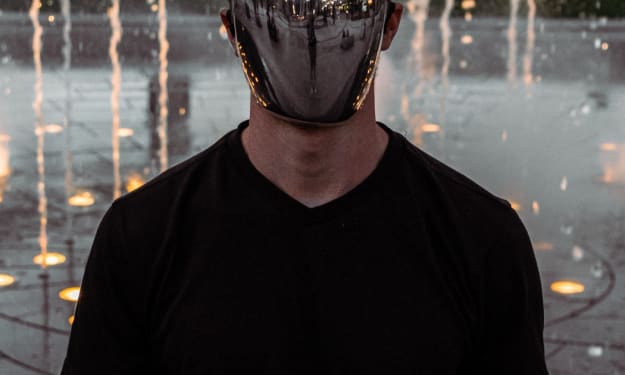
Until my partner pointed out to me that I always turned to him with every problem, large or small, I didn’t have a single clue I was doing it. I did it automatically, without any further thought or self-awareness.
I was asking for his help with literally everything — from opening a can of beans to sorting out refunds for my trains — as if I was a helpless child.
Medical News Today describes it like this:
“Learned helplessness is a state that occurs after a person has experienced a stressful situation repeatedly. They come to believe that they are unable to control or change the situation, so they do not try — even when opportunities for change become available.”
I’ve never been much of a quitter in life, but as I read the article, I slowly began to realise that my personal relationships were a completely different story.
I’ve always had problems with depending on people, especially partners, too much — I used to be a super clingy girlfriend for one. It wasn’t the best, that’s for sure.
This behaviour manifests in various ways. In a crisis, I turn to my partner or a best friend, expecting them to solve it. When I walk outside chatting to someone, I have no idea where we’re going because I automatically feel like they are in charge of the directions. I still kind of wish my mum could call the doctor for me, but that would be kind of weird at 22 years old.
“You immediately turn to me when your computer screen freezes for a second as if I should solve it,” my partner pointed out. “I love you but sometimes it feels like I’m caring for a child instead of dating somebody.”
Ugh. Here we go again with that awful regression again.
Here’s how Healthline describes regression:
“Age regression occurs when you mentally retreat to an earlier age. In all ways, you believe you’re back at that point in your life, and you may exhibit childish behaviors, too.”
Great.
Sometimes I really feel like my mind can’t catch up with the fact that I’m an actual adult now. I scream at it to hurry up but all it wants is to have no responsibility whatsoever and be cared for in every single way.
It’s quite embarrassing, to be frank with you.
It’s not like I can’t solve issues when I’m alone. I pride myself on my capability to tackle any problem and to be very independent. As soon as there’s a partner in the picture, though, it’s a different story. A switch goes off in my brain and I automatically expect to give up my self-sufficiency in exchange for being totally helpless.
Weird, right?
This strange feeling of dependence, regression and helplessness is honestly really cosy. It’s addictive. Once I start displaying it regularly, it’s much harder to stop, which is why my partner got so frustrated. He likes me being silly and playful with him — that is often a sign of a very healthy relationship — but this was just too much.
It was time to do something about it.
Why people might act this way
Learned helplessness was first described by Prof. Seligman and Prof. Steven F. They conducted a study on dogs — they exposed them to electric shocks repeatedly (luckily, things have gotten better in the sphere of animal welfare since 1967).
Some dogs could press a lever and stop the shocks, while others were provided with nothing. The latter group developed symptoms of anxiety and depression. In a further study, these depressed dogs could jump over a barrier and avoid the electric shocks.
But they did not. They learned to be helpless during the first study and they didn’t have any hope that their circumstances would change. They simply gave up and let the suffering continue.
When it comes to adult humans with this problem, they act in a similar way. They expect there to be no solution, even when it can be achieved, and they feel like they have very little control over what happens to them.
This has roots in childhood. If you had a caregiver who didn’t properly respond to your needs, you might have learned that you couldn’t change the situation no matter how hard you tried, and so you ended up resigning.
Personally, I felt like this frequently while growing up — I wanted to take control of my life and change the situation I was in, but it wasn’t possible. I still had to rely on my parents when I knew they weren’t capable to fulfil what I needed. This constant state of being stuck with no opportunity to change my circumstances perpetrated every area of my life until I turned 18.
Regressing back to childhood and turning to my boyfriend with every single issue is a display of searching for what I lacked as a child — someone to help me when I need it, care for me appropriately and take responsibility for me in the best possible way.
Obviously, he can’t do all of that. It’s up to me to do the inner work.
How to deal with learned helplessness in a relationship
These are some of the techniques that have helped me so far.
Develop more self-awareness
I try to notice it as much as possible when I stumble and turn into a helpless child again. My boyfriend also agreed to point it out to me when it’s relevant so that I can gain more understanding of what triggers it.
One of the main things that accompany this state is talking in baby voice too much. Science explains that baby voice is actually a sign of a healthy relationship, however, it has its limits. I can attest to that.
If you act like a child too often, it can be one of the things that trigger learned helplessness and make you regress even more. Try to be more aware of that.
Imagine the strong person you want to be
This has helped me the most so far.
When I’m plunged deep in regression and find it hard to discover a way out, I imagine a strong and independent woman — how she acts, what atmosphere she brings into the room, in what ways I aspire to be like her.
You can make this woman up, you can simply imagine yourself in this version or you can relate it to a woman you know. Every time I remember my boyfriend’s mum and her cool and independent behaviour, I feel inspired by her and I manage to snap out of it. I lean into the feeling of strength, power and self-sufficiency. It grounds me.
Take care of your inner child
The reason why I regress so much might be because the child within me wants to express herself. She wants attention, love and stability from a male figure because she grew up in a constant state of chaos and insecurity.
A man can’t give her what she needs. The time for a healthy father-and-daughter bond is long gone. Nothing I can do about that.
But I can show her that I care for her. I can be the responsible adult she needed so much without having to regress every time there’s the slightest trigger.
This one is hard. Words of affirmation help a lot — keep telling yourself that you’re loved, you’re cared for, you’re no longer in danger. Forgive yourself and have compassion for yourself.
The only person who can properly acknowledge your feelings and help you move on is you.
Final Thoughts
Falling in love and entering a romantic relationship can trigger countless issues from your childhood. A partner is the often the person you’re closest to since your parent, however strange it might sound, except that the level of intimacy is obviously much higher.
If you had a problematic relationship with your primary caregivers, it’s likely you’ll have issues with your partner. This isn’t the end of the world. It just means that apart from finding compromises, you also have to put a lot of effort into your inner healing.
A wonderful partner will help you with that. You help each other heal, grow and dig out all the rubbish that other people dumped on you a long time ago.
So be open to healing together. It strengthens the bond a thousand-fold.






Comments
There are no comments for this story
Be the first to respond and start the conversation.